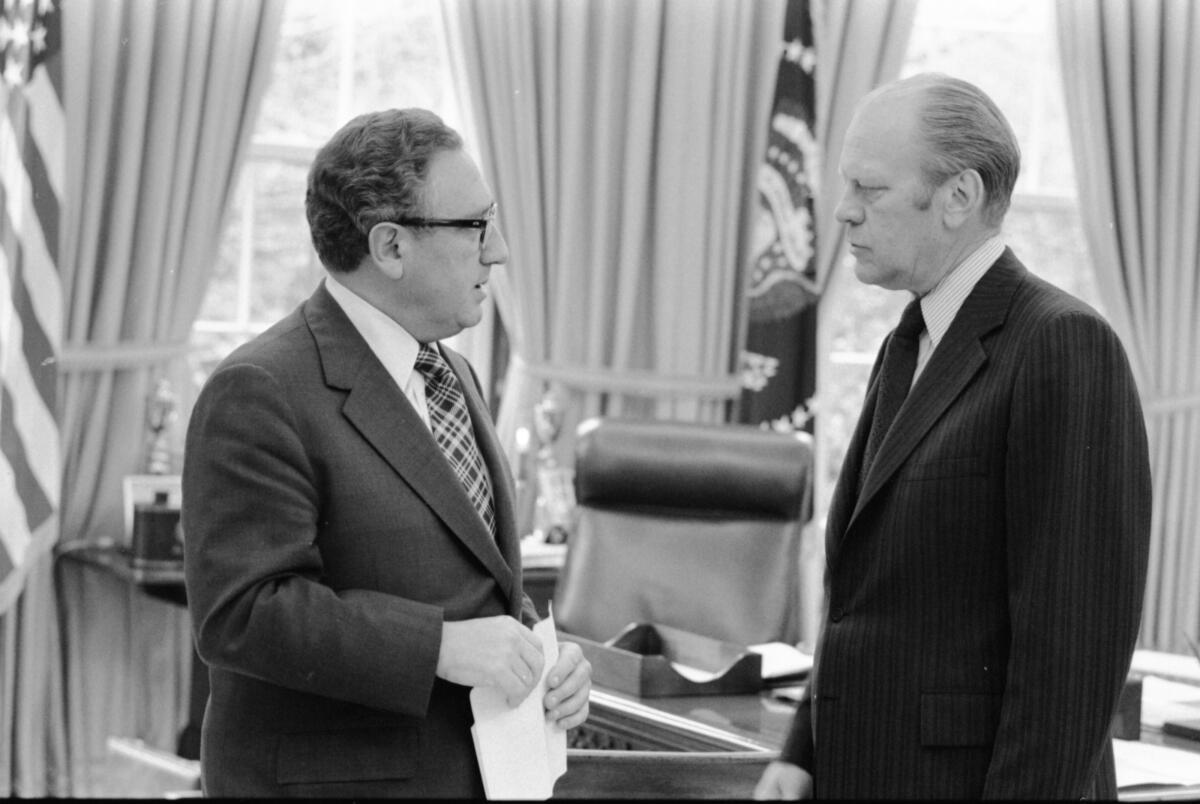Letters to the Editor: Henry Kissinger is dead. Mourn his millions of victims instead of him

- Share via
To the editor: If former Times writer Norman Kempster had reviewed documents uncovered over the last few years and considered that Henry Kissinger was likely responsible for even more than the 3 million deaths attributed him by his biographer Greg Grandin, he might have written a more balanced and less hagiographic obituary of Kissinger. (“Henry Kissinger, one of the most influential and controversial foreign policy figures in U.S. history, dies,” Nov. 29)
But this would have been impossible, since Kempster himself passed away three years ago.
There is no evidence that Kissinger ever expressed any remorse for the deaths of millions of individuals around the world — overwhelmingly innocent civilians — who died as a result of his advice to American and foreign political leaders.
So I cannot mourn Kissinger’s death. Neither can I celebrate it, as I view with shocked horror the widespread bipartisan acclaim granted him by the vast majority of political leaders and media owners.
Better instead to mourn his victims and the countries whose governments he subverted, and then look inside our own souls to ask why, in a country with such high ideals and many very good people, we continue to tolerate the unceasing expansion of our war machine.
Douglas W. Clark, Los Angeles
..
To the editor: One of Kissinger’s enduring but little-known legacies was his early involvement in transferring the Panama Canal to Panamanian control.
In 1973, I was executive director of the Foreign Policy Assn. of Panama and asked to arrange a meeting between our president and Kissinger’s principal Latin American specialists.
Kissinger’s approval opened a back-channel discussion of how the U.S. could be freed of responsibility for a highly vulnerable, aging utility that needed massively expensive upgrading to remain relevant in world trade. He thought Ronald Reagan’s characterization of the canal — “We bought it, we paid for it, it’s ours, and we’re gonna keep it” — was naive.
The way to formal negotiations between the U.S. and Panama had been opened, which led to ratification of the Panama Canal Treaty in 1978 and the eventual transfer in 1999.
Godfrey Harris, Los Angeles



